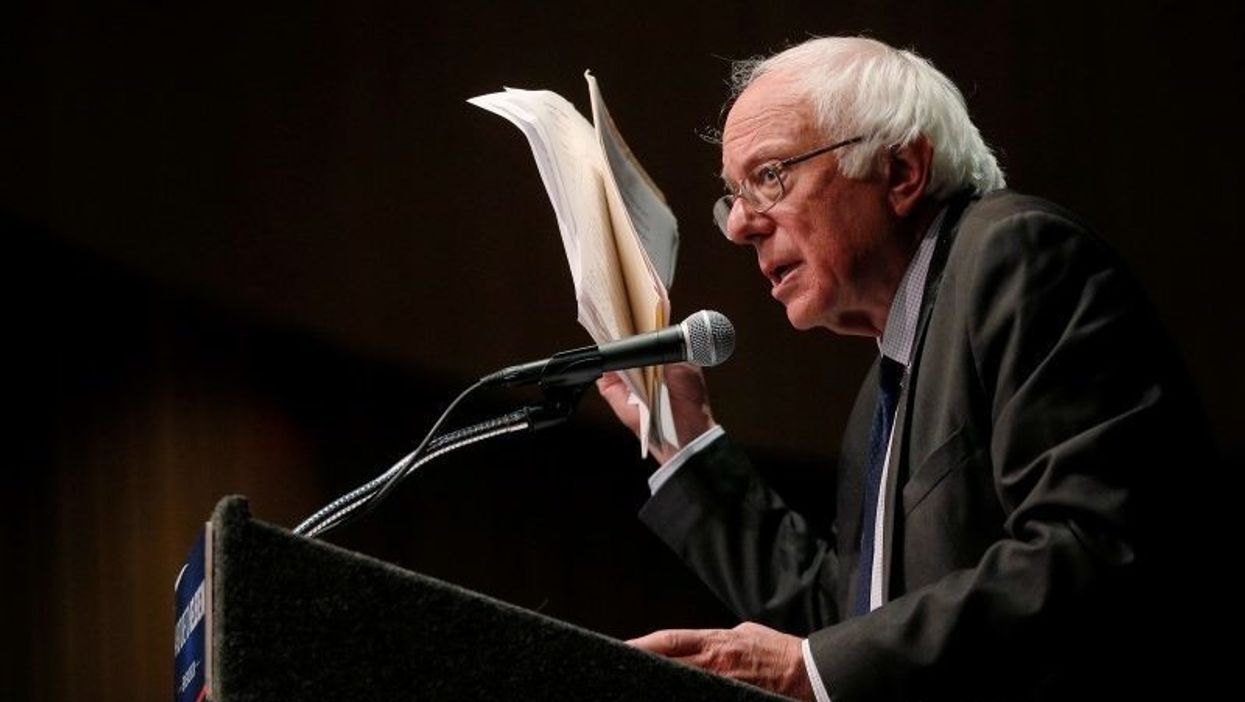
During a recent presidential debate, one Democratic candidate came out foursquare against majority rule, and hardly anybody noticed.
On Feb. 19, NBC's Chuck Todd asked all six candidates on the stage to opine whether the person with the largest number of pledged delegates at the Democratic National Convention in July should become the party's nominee, even if that person had fewer than half the votes.
Five said no. Party rules previously agreed upon by all candidates would require a second round of voting, with so-called "superdelegates" (mainly elected officials) participating for the first time. Further ballots might become necessary until one candidate secured a majority: Democracy 101, a simple-minded observer like myself would have imagined.
Sending a candidate unable to attract a majority of Democrats out to do battle with Boss Trump in November would seem to almost guarantee defeat.
Bernie Sanders dissented. Evidently, minority rule would be perfectly OK with him, so long as he's its beneficiary. Otherwise, and almost needless to say, the mind of man can scarce conceive the furor from Bernie and his supporters if things went the other way, and the candidate with a winning plurality turned out to be somebody other than him.
In that case, things would be very different.
But hold that thought.
Anybody who remembers Sanders' high-wire performance during his 2016 campaign against Hillary Clinton will recall that he refused to concede the nomination even after his opponent had secured a clear majority of party delegates. He demanded an opportunity to win over previously denounced and despised superdelegates, an effort that failed.
Nancy LeTourneau sums things up succinctly in TheWashington Monthly: "In the end, Sanders has gone from refusing to concede the nomination in an attempt to woo superdelegates, to negotiating their elimination from the first ballot, to now suggesting that the rules he negotiated shouldn't be followed. The only thing that ties those three positions together is a determination of what would be in the best interests of Bernie Sanders."
To Sanders supporters, it follows that an unseemly outbreak of democracy at the Democratic National Convention must be prevented. A so-called "brokered convention" would be a sinister and dangerous thing. Writing in The Nation, the venerable left-wing magazine that endorsed Bernie, political scientist Edward Burmila warns that "A Brokered Convention Would Be an Ugly Act of Self-Sabotage."
Subhead: "Are establishment Democrats really willing to destroy the party on live television?"
Although he believes that political junkies yearn for the excitement of a contested nomination, Burmila warns that "Democrats should know intuitively that a wild, public fracturing at the convention in Milwaukee would be a very bad look. Imagine the 24-hour cable news cycle and social media full of video clips of a compromise nominee being booed, an angry walk-out … It could, and very likely would, get ugly."
Ugly, that is, unless an impassioned minority got its way.
In short, Sanders supporters essentially threaten to take the Democratic Party hostage. Unless they win, the contest was crooked — precisely the kind of thinking that makes Bernie my next-to-last presidential choice among candidates of both parties. Indeed, probably among all eligible American adults not named Tulsi Gabbard.
Marxist dialectic can be a very supple and complex thing. Also seductive. Yes, a contested Democratic convention would be an unruly mess. No doubt about it. A united party would certainly stand a better chance against the Great Divider. It would seem to follow that Real Democracy in 2020 requires minority rule by the zealous and enlightened. Basically the "woke," as current slang has it.
Or as the ruling class of pigs put it in Orwell's Animal Farm: "All animals are equal, but some animals are more equal than others."
Of course, nobody quite puts it that way.
Do I exaggerate? Could be. However, I provoked great anger from Sanders supporters recently on Facebook for saying I believe in majority, i.e. 51 percent, rule. If that means horse-trading before or during the Democratic convention, then so be it. For this I was denounced as a tool of the billionaire class, an enemy of universal health care, a racist, a possessor of extreme wealth, and a recipient of bribes, among other sins. My antagonists gave both the straw man and ad hominem logical fallacies a real workout.
Even my Scrooge McDuck jokes failed to mollify them. Frankly, it was like nothing so much as reading my emails from Trumpists.
So forget all this happy talk about how beating Boss Trump is Job One. Should any rival candidate — Joe Biden, Elizabeth Warren, whomever — succeed in putting together a majority coalition that denies Sanders the nomination, then evil will have triumphed in the persons of "billionaires," "corporate Democrats," "sellouts," "establishment whores," etc.
Look, if Bernie wins, he wins. But to the extent people think that they're helping their man with this stuff, they are badly mistaken.


